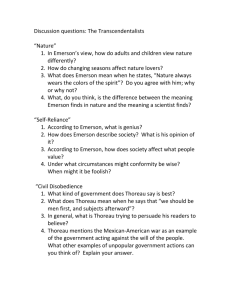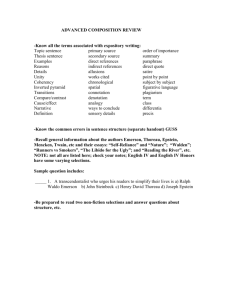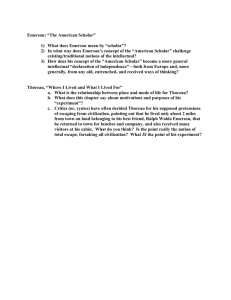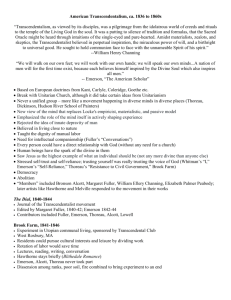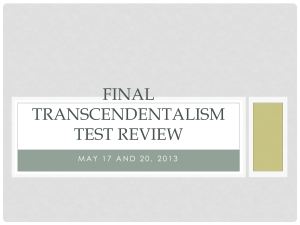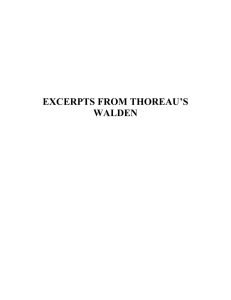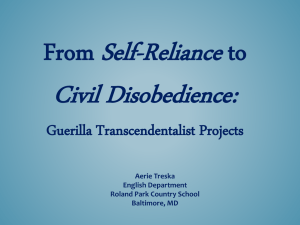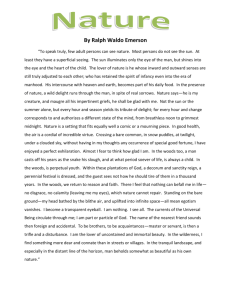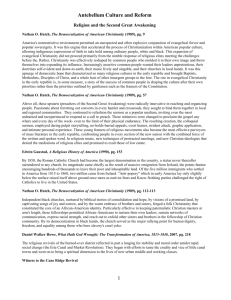Emerson and thoreau homework answers 2009
advertisement
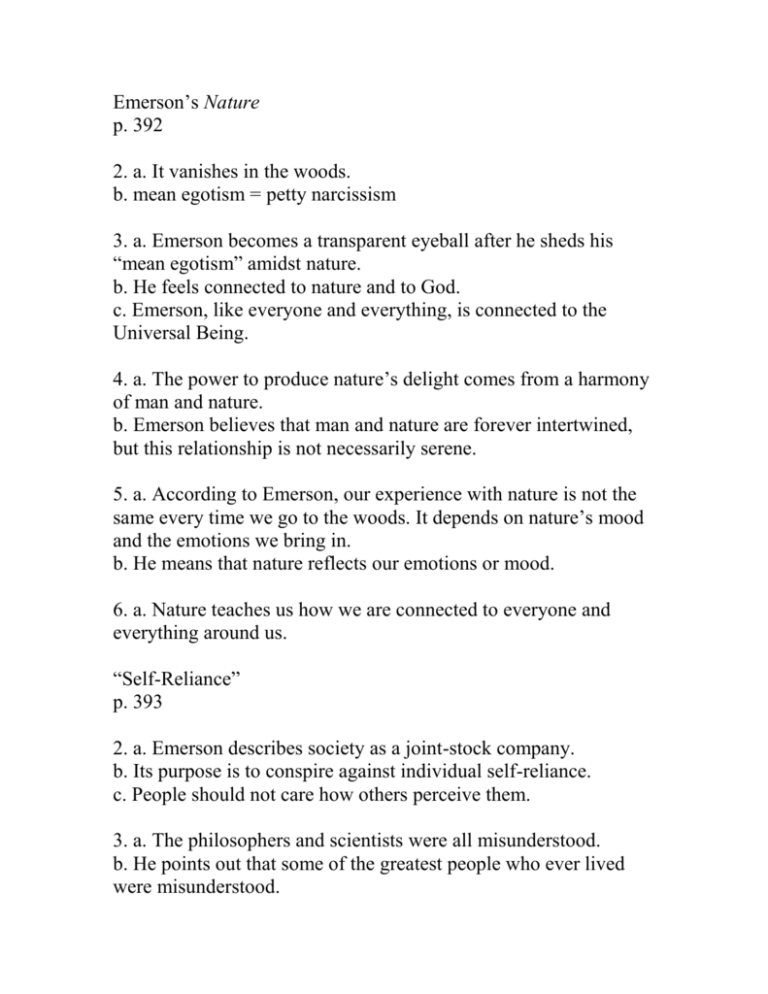
Emerson’s Nature p. 392 2. a. It vanishes in the woods. b. mean egotism = petty narcissism 3. a. Emerson becomes a transparent eyeball after he sheds his “mean egotism” amidst nature. b. He feels connected to nature and to God. c. Emerson, like everyone and everything, is connected to the Universal Being. 4. a. The power to produce nature’s delight comes from a harmony of man and nature. b. Emerson believes that man and nature are forever intertwined, but this relationship is not necessarily serene. 5. a. According to Emerson, our experience with nature is not the same every time we go to the woods. It depends on nature’s mood and the emotions we bring in. b. He means that nature reflects our emotions or mood. 6. a. Nature teaches us how we are connected to everyone and everything around us. “Self-Reliance” p. 393 2. a. Emerson describes society as a joint-stock company. b. Its purpose is to conspire against individual self-reliance. c. People should not care how others perceive them. 3. a. The philosophers and scientists were all misunderstood. b. He points out that some of the greatest people who ever lived were misunderstood. 4. a. The adjective “foolish” is important because it distinguishes between a rational consistency of thought and purpose and an unreasoning, compulsory conformity. b. Emerson clearly said that a “foolish” consistency was to be avoided. He would be unlikely to advocate inconsistency in scholarship, or in friendships and family life. 5. a For Emerson, the divine is God’s idea of what each of us might be if we had the courage to live up to our full creative potential. b. He would say that the reason for living is to seek out God’s purpose for us and to pursue it without fear of society’s pressures and opinions. Thoreau’s Walden p. 415 2. a. Thoreau tells his “fellows” to avoid the commitments of ownership. b. “Little difference between … committed to a farm or the county jail” – Thoreau means that all commitments create restrictions and demands. 3. a. Advice to those who live in poverty? Love life and find the best in it. b. Thoreau defines true wealth as spiritual rather than financial. 4. a. Our life is “frittered away by detail.” b. “Simplify! Simplify! Simplify!” – Thoreau means that people should reduce both their material possessions and the external demands of their livers. 5. a. Thoreau hoped to identify and experience the very essence of life. b. Time well spent? He’s learned to “advance in the direction of his dreams” and “live the life which he has imagined.” Civil Disobedience p. 417 2. a. Thoreau accepts the motto: “That government is best, which governs least.” b. He would like to see this implemented quickly and systematically. 3. a. Thoreau’s definition of the best possible kind of government? “A government that governs least is the best possible kind of government. b. Thoreau says that when people are ready, they will dispense with government altogether. 4. a. He is asking his readers to step forward and state what they want from government. b. Is he convincing? 5. a. Without a standing government, the nation cannot prepare itself for war, cannot make plans for future needs and cannot organize national elections.
